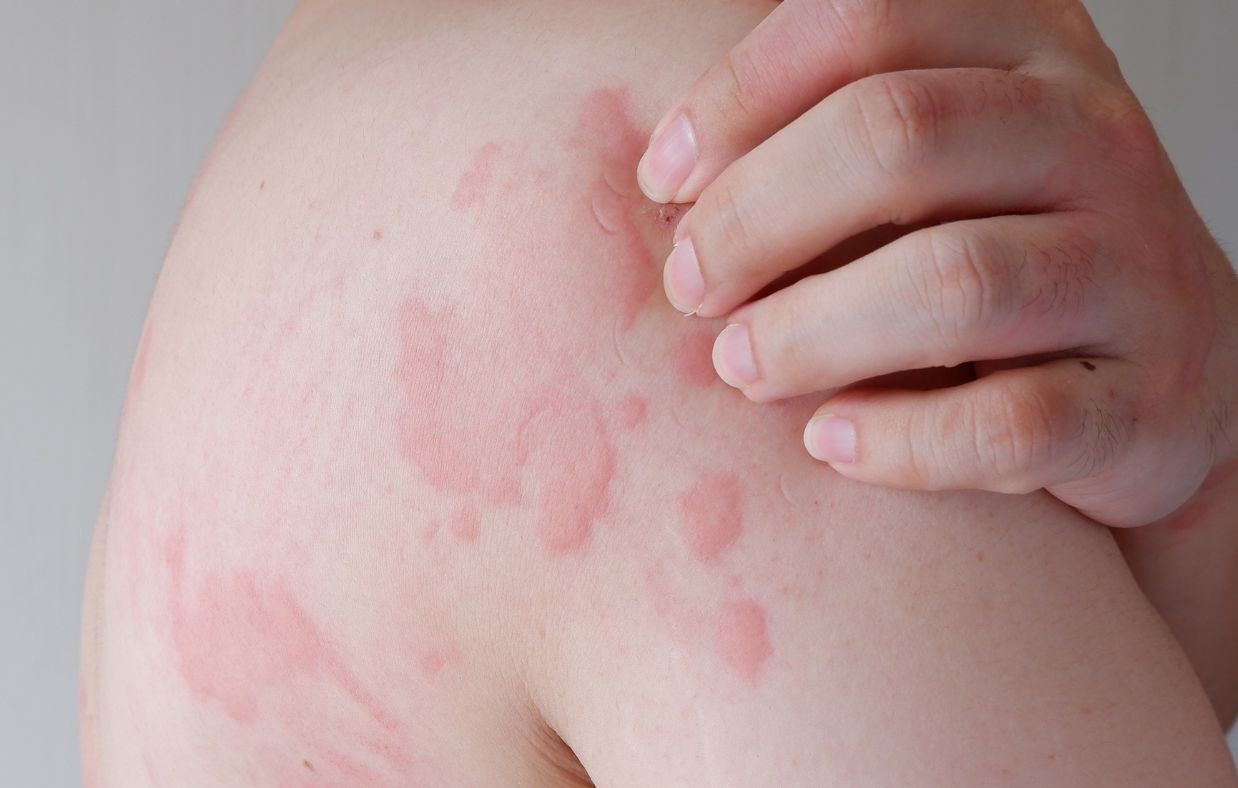
Skin & Cold Allergy: Causes, Symptoms, and Treatment
Allergies occur when the immune system overreacts to harmless substances (allergens), triggering inflammation, itching, rashes, or respiratory symptoms.
1. Skin Allergies (Allergic Dermatitis)
Causes & Triggers
- Contact Dermatitis – Skin reaction from allergens like nickel (jewelry), perfumes, cosmetics, or latex.
- Eczema (Atopic Dermatitis) – Chronic skin inflammation, often linked to genetics and environmental triggers.
- Hives (Urticaria) – Raised, itchy welts caused by food allergies, medications, insect bites, or stress.
- Drug Allergies – Some medications (e.g., penicillin, NSAIDs) can cause skin rashes or severe reactions.
Symptoms
- Itchy, red, inflamed skin.
- Rashes, blisters, or swelling.
- Dry, cracked skin (eczema).
Treatment & Remedies
- Antihistamines – Oral (cetirizine, loratadine) or topical (diphenhydramine cream).
- Steroid Creams (Hydrocortisone, Betamethasone) – Reduce itching and inflammation.
- Moisturizers & Barrier Creams – Help soothe and protect sensitive skin.
- Avoid Triggers – Identify and eliminate allergens like certain soaps, detergents, or fabrics.
- Oatmeal Baths & Cold Compresses – Provide relief from itching and irritation.
2. Cold Allergy (Cold Urticaria & Rhinitis)
Causes & Triggers
- Exposure to cold air, water, or objects triggers an allergic reaction.
- Can be associated with underlying immune system disorders in rare cases.
Symptoms
- Hives or redness on exposed skin.
- Swelling (Angioedema) of lips, hands, or face in extreme cold.
- Sneezing, runny nose (Cold Rhinitis) – Similar to hay fever but triggered by cold air.
- Wheezing or Shortness of Breath (in severe cases).
Treatment & Remedies
- Antihistamines (Loratadine, Fexofenadine, Cetirizine) – Prevent allergic reactions before exposure.
- Wear Warm Clothing & Cover Exposed Skin – Use gloves, scarves, and masks in cold weather.
- Avoid Sudden Temperature Changes – Gradually warm up after being in the cold.
- Epinephrine (EpiPen) – For severe cold-induced anaphylaxis.
3. Prevention Tips
- Identify & Avoid Triggers – Keep a journal of allergy flare-ups.
- Boost Skin Barrier – Regular use of moisturizers helps prevent irritation.
- Stay Hydrated & Eat a Balanced Diet – Supports skin health and immune function.
- Allergy Testing – Consult a doctor for skin prick or blood tests if unsure about triggers.

